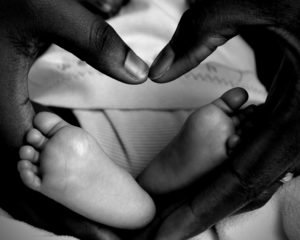 Getting rid of the adoption tax credit is a bad idea. Trying to do so during National Adoption Month is just unthinkable. But that is exactly what the GOP is considering as they debate tax reform.
Getting rid of the adoption tax credit is a bad idea. Trying to do so during National Adoption Month is just unthinkable. But that is exactly what the GOP is considering as they debate tax reform.
It’s a stark contrast. President Donald J. Trump’s proclamation of November as National Adoption Month is a beautiful display of the incredible value of adoption to our nation.
“During National Adoption Month,” he wrote, “we celebrate the thousands of families who have expanded through adoption, and we acknowledge the strength and resiliency of the children who are still waiting to find their forever home.”
What’s even more relevant to our discussion, he said, “We must continue to remove barriers to adoption whenever we can, so that the love and care of prospective adoptive parents can be directed to children waiting for their permanent homes.” And concluded, “This month, let us celebrate the gift of adoption — an act of love that provides deserving young people with the foundation they need to achieve their potential and pursue the American Dream.”
That is just beautifully said by the president. We should all stand with him in carrying that vision to “remove barriers to adoption.”
Enter congressional number crunchers who (in good faith, we will assume) decided that the best way to do that is to take away this small (in the larger context) but significant adoption incentive within the tax code.
The reasoning is that they will increase the child tax credit by $600 to $1,600 per child. That would indeed aid all families, whether they adopt or not. Okay, I am sure families would gladly welcome that relief, but “no.” No! That is not an adoption incentive.
Helping all families sort of defeats the purpose of incentivizing adoption. It is supposed to encourage adoption specifically, not just help all families.
Not to mention the fact that the numbers don’t add up. The child tax credit just doesn’t help potential adopting families where they need it most. Adoption is a very expensive process (close to $50,000 in some cases) and the prospects of such a financial burden in a considerably short period of time is a huge barrier to families considering adopting. The Adoption Tax Credit, which was $13,570 in 2017, can alleviate that.
Telling that family, “But you will get $600 more through the child tax credit” is not the same thing.
The Ethics and Religious Liberty Commission (ERLC) of the Southern Baptist Convention sent out an email as soon as the news broke, explaining that the tax break numbers are more than outweighed by the benefits of adoption. It read:
Over 60 percent of adopted children are adopted by middle- and lower-income taxpayers, and almost half of children adopted from foster care live in families with household incomes at or below 200 percent of the federal poverty level.
Just as important to consider is what adoption saves the government. The government saves between $65,000 and $127,000 for every child who is adopted rather than placed in long-term foster care.
Concerned Women for America (CWA) joined the ERLC and other pro-life groups in a letter to Chairman Kevin Brady, who leads the leads the House Ways and Means Committee and introduced the Tax Cuts & Jobs Act, asking him to preserve the adoption tax credit. It reads in part:
Without this tax credit, many families would not and will not be able to afford adoption, leaving more children without loving families. Over 60 percent of adopted children are adopted by middle- and lower-income taxpayers, and almost half of children adopted from foster care live in families with household incomes at or below 200 percent of the federal poverty level.
We urge you to ensure that the adoption tax credit is protected and preserved in the Tax Cuts and Jobs Act of 2017.
Christian adoption activist and writer Chelsea Sobolik, who was adopted herself, wrote that the credit should be preserved as it helps the most vulnerable in our society:
Chairman Brady should do everything in his power to ensure that the provisions of the Adoption Tax Credit are placed back into the Tax Cuts and Jobs Act. Not only will it make this tax plan a more holistic pro-family bill, it’s also the right thing to do. Republicans should continue to put policies into place that help the most vulnerable, and children in need of a loving and permanent family certainly meet that criteria.
Chelsea is a former CWA employee whose upcoming book “Longing for Motherhood: Holding On to Hope in the Midst of Childlessness” will be released next year.
The pro-life community is united on this. Let us hope our plea is heeded and the idea of cutting the adoption tax credit dropped promptly so that Congress can focus on more productive areas.

